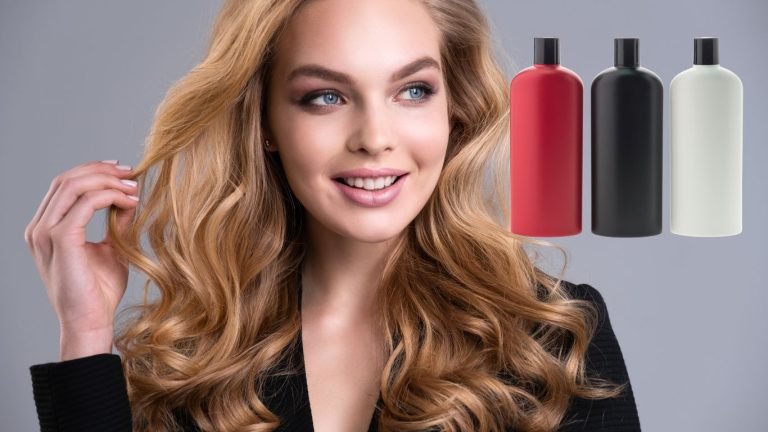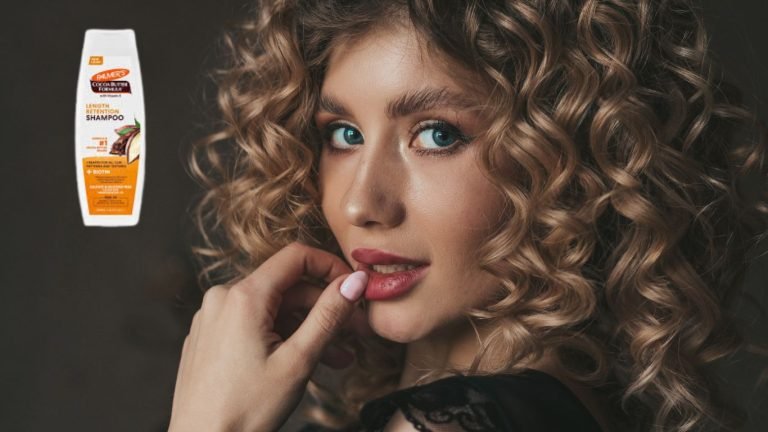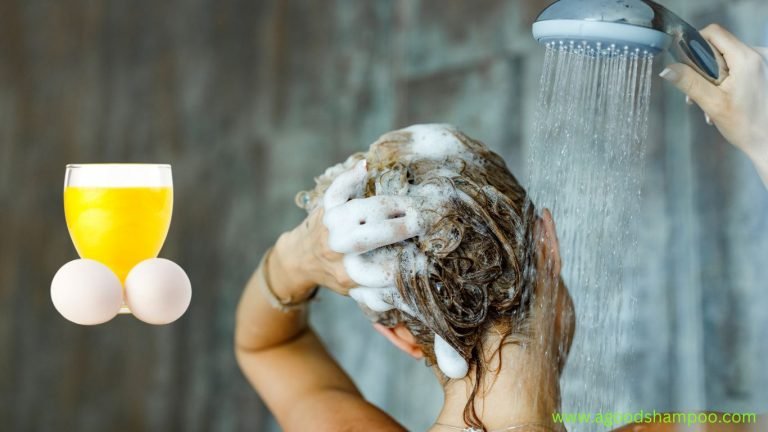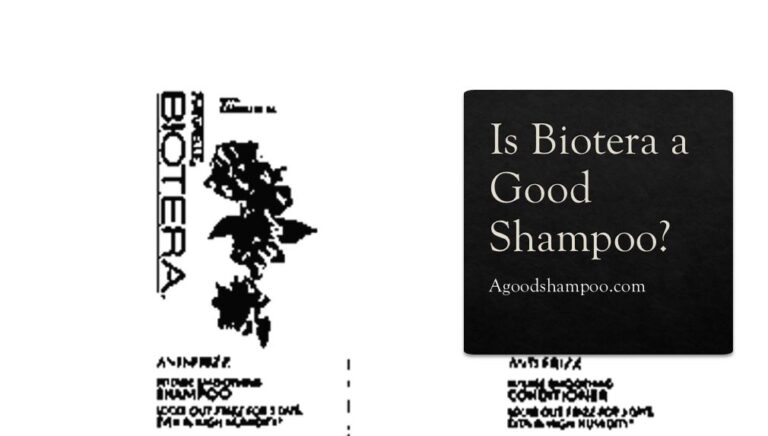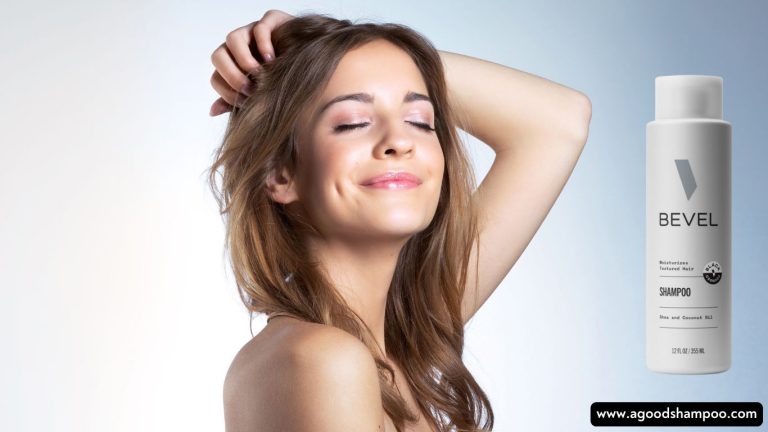Is Organics Shampoo Good for 4C Hair? Expert Review & Tips
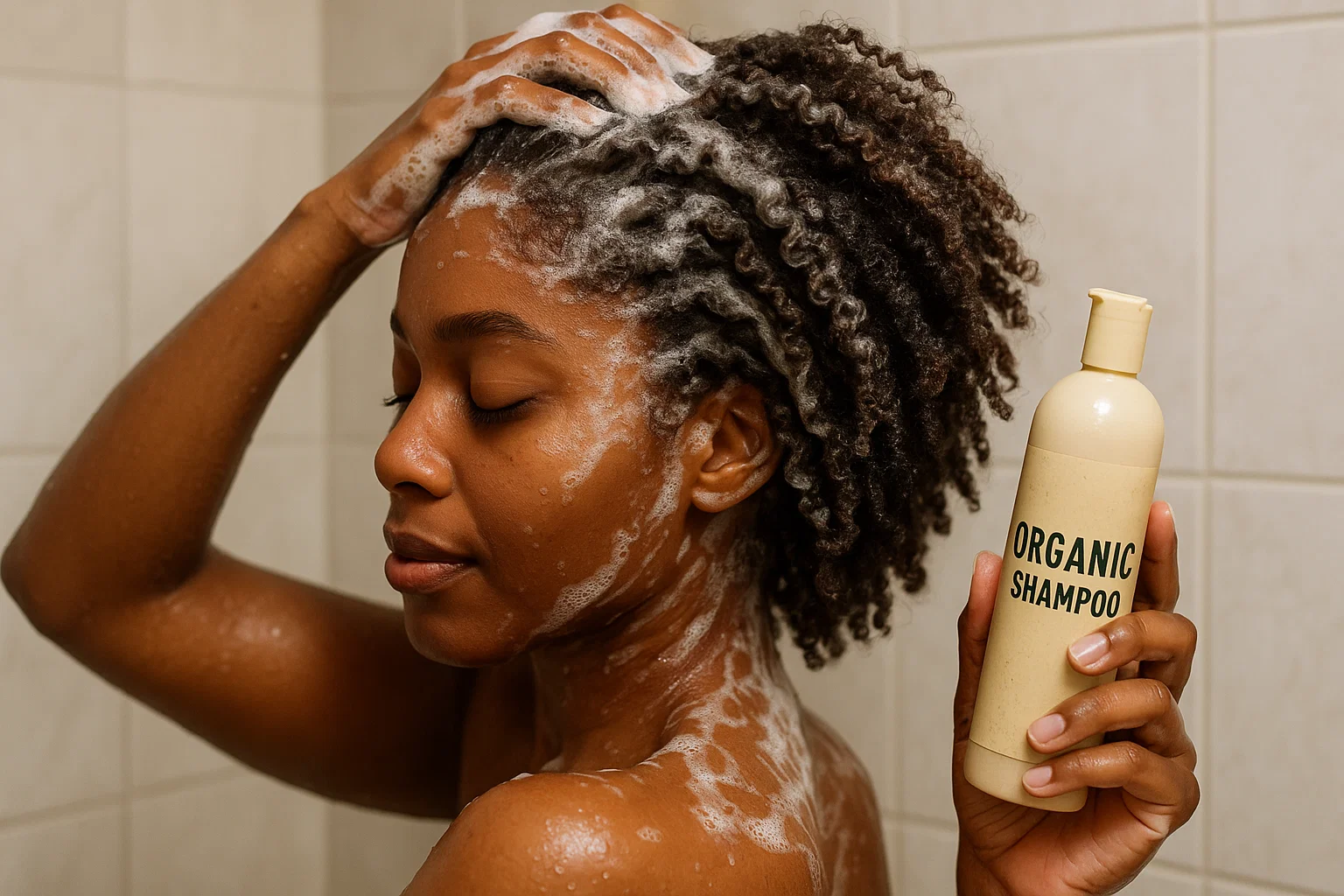 I’ll be honest, finding a shampoo that actually loves 4C hair isn’t easy. You grab a “hydrating” bottle that promises moisture, but ten minutes later, your curls feel squeaky, dry, and slightly betrayed. I’ve been there, so many times. That’s why the idea of “organic shampoo” sounds dreamy. It’s natural, gentle, free from harsh chemicals, and it claims to let your coils breathe again.
I’ll be honest, finding a shampoo that actually loves 4C hair isn’t easy. You grab a “hydrating” bottle that promises moisture, but ten minutes later, your curls feel squeaky, dry, and slightly betrayed. I’ve been there, so many times. That’s why the idea of “organic shampoo” sounds dreamy. It’s natural, gentle, free from harsh chemicals, and it claims to let your coils breathe again.
But the real question is, does it actually work for 4C hair, the tightest, most delicate curl pattern out there? Let’s break this down the way I do in the salon, with facts, ingredients, and a little personal experience.
What 4C Hair Really Needs
If you’ve got 4C hair, you already know it’s beautifully complex. Each strand bends and coils so tightly it almost hides its own shine. But underneath that dense texture lies one truth, 4C hair is dry by nature.
That’s because its tiny curls make it harder for natural oils to travel down the hair shaft. It’s why water becomes your best friend and sulfates your worst enemy.
So, when picking a shampoo, 4C hair needs:
Moisture-retaining ingredients (like aloe vera, honey, shea butter)
Mild cleansing agents that don’t strip the scalp
pH-balanced formulas that keep the cuticle flat and shiny
And ideally, no harsh sulfates or silicones clogging up the party
This is where organic or natural shampoos come in, most are designed to do exactly that.
What Makes a Shampoo “Organic,” Anyway?
Let’s be clear, “organic” doesn’t just mean it smells like coconuts and good intentions. True organic shampoos are formulated with plant-based ingredients grown without synthetic chemicals or pesticides.
They usually skip:
Sodium lauryl sulfate (SLS)
Parabens
Phthalates
Artificial dyes or fragrances
Instead, they rely on botanicals, essential oils, and gentle cleansers like cocamidopropyl betaine or sodium coco sulfate, which are far less drying.
According to a 2023 Journal of Cosmetic Dermatology study, mild surfactants combined with natural emollients help preserve moisture in curly hair better than traditional cleansing agents.
So yes, organic shampoos often have a scientific leg to stand on, but 4C hair still needs more than just “natural.” It needs hydration that lasts.
A Statista beauty survey found that 72 % of Black women prefer natural or clean hair products, but over 60 % said many still leave their hair dry. That means “organic” doesn’t automatically equal “moisturizing.”
How Organic Shampoos Interact with 4C Hair
Let’s talk about that first wash day after switching to an organic shampoo. You notice the lather feels lighter. The scent is herbal, maybe earthy. Your curls don’t foam up like they used to, but afterward, your scalp feels… calm.
That’s because most organic shampoos are low-lather cleansers, they’re working without stripping the natural oils your hair desperately needs.
They clean gently, lifting dirt and product buildup from your scalp, but keep enough moisture in to stop that post-wash crunch.
However, some formulas are too gentle and might not remove heavy oils or gels, especially if you style with thick butters. So if you use heavy styling products, you may want to alternate between your organic shampoo and a clarifying wash once every few weeks.
Ingredient Breakdown, What to Look For
When I test organic shampoos on 4C hair in the salon, I don’t go by packaging claims. I go straight to the ingredient list. These are the power players that actually matter.
1. Aloe Vera Juice
Hydrates, soothes the scalp, and keeps curls juicy without greasiness. Great for calming itchiness and dryness.
2. Shea Butter & Coconut Oil
Lock in moisture and coat the strand’s outer layer to reduce friction between coils. They’re rich in fatty acids that soften coarse hair.
3. Honey & Glycerin
Both are humectants, they pull water from the air into your strands. That’s gold for thirsty curls.
4. Tea Tree Oil or Peppermint Oil
Gentle cleansers that stimulate the scalp and help with dandruff, but they should never be in high concentration (too much can dry the scalp).
5. Castile Soap Base
A mild, biodegradable cleanser derived from plants like olive or coconut oil. Ideal for a deep but balanced clean.
6. Protein Balance
4C hair needs protein in moderation. Look for hydrolyzed oat, quinoa, or wheat protein, not heavy keratin that can stiffen fine coils.
If your shampoo includes most of these and keeps the pH between 4.5–5.5, you’re likely in safe, curl-loving territory.
What Research Says
Studies from the Journal of Dermatological Science show that shampoos rich in fatty alcohols (like cetyl or stearyl alcohol) and plant oils help strengthen the cuticle barrier, especially in highly curly or coily hair types. That means organic blends with natural emollients can genuinely improve hair elasticity and reduce breakage over time.
Real-World Favorites (Backed by Experience)
After testing dozens, here are some organic and clean shampoos that truly understand 4C hair:
Mielle Organics Babassu Oil Conditioning Shampoo
Infused with babassu oil and amino acids. It’s lightweight but surprisingly moisturizing. The first time I used it on a client’s 4C coils, her hair didn’t just feel soft, it bounced back. No film, no residue, just clean, elastic curls.
SheaMoisture Raw Shea Butter Moisture Retention Shampoo
Classic. It’s thicker, almost creamy. The blend of shea butter, argan oil, and sea kelp deeply nourishes dry strands. A great pick for brittle or color-treated 4C hair.
Alikay Naturals Moisture Rich Parfait Shampoo
One of my hidden gems, packed with silk amino acids, coconut oil, and nettle. It softens the hair and keeps the scalp balanced.
Carol’s Daughter Black Vanilla Sulfate-Free Shampoo
If your 4C hair needs slip and scent, this one delivers. The mix of aloe, sweet clover, and rose extract adds shine and manageability.
Each of these brands blends science and natural ingredients beautifully, without the harsh stripping agents that 4C hair can’t stand.
What Happens When You Switch to Organic Shampoo
The first few weeks can feel a little weird, your hair might seem heavier or even duller. That’s because it’s adjusting to a gentler cleanse. You’re removing the coating left behind by silicones or waxy residues.
After three to four washes, something magical happens: your curls begin to respond differently. They drink up water again, absorb conditioner better, and your twist-outs hold definition longer.
The scalp, often forgotten, also benefits, less irritation, fewer flakes, and a more balanced oil level.
Quick Fact
According to NaturallyCurly.com’s 2024 texture report, 4C hair loses up to 25 % more moisture after washing with sulfate-based shampoos compared to sulfate-free organic formulas.
The Pros of Organic Shampoos for 4C Hair
Let’s keep it real, there’s plenty to love about switching natural:
Gentle Cleansing – Fewer sulfates mean no harsh stripping of sebum or natural moisture.
Better Moisture Retention – Organic ingredients like aloe and shea butter actually seal in hydration.
Scalp Health – Essential oils help regulate oil production and soothe inflammation.
Less Product Build-Up – Natural cleansers rinse out easily.
Eco-Friendly Formulas – Biodegradable ingredients are kinder to the planet and often cruelty-free.
The Cons , Because Honesty Matters
Weaker Lather – No SLS means less foam. Some people miss that “squeaky clean” feel.
Shorter Shelf Life – Natural ingredients don’t preserve as long.
Higher Price Tag – Quality oils and extracts cost more.
Not All Organic Is Good – Some products are labeled “natural” but still use drying alcohols or synthetic fragrance. Always read labels.
Ingredient Checklist for 4C Hair Lovers
If you’re shopping, here’s the cheat sheet I give my clients:
✅ Look for: Aloe Vera, Shea Butter, Babassu Oil, Honey, Hibiscus Extract, Glycerin, Oat Protein, Castile Soap, Jojoba Oil.
❌ Avoid: Sulfates, Mineral Oil, Isopropyl Alcohol, Heavy Waxes, Silicones like Dimethicone, Artificial Fragrance.
Remember, organic doesn’t always mean curl-safe, some “natural” essential oils can irritate sensitive scalps. Less is more.
My Salon Routine for 4C Clients Using Organic Shampoo
Here’s the flow that works wonders:
Pre-poo with a light oil (coconut, almond, or argan). Leave it on for 20 minutes.
Wash gently. Apply the organic shampoo to your scalp only, massage in circular motions. Let the rinse carry suds through the length.
Follow with a deep conditioner. Look for one with honey, avocado, or banana.
Seal the deal. Finish with a leave-in conditioner and a few drops of oil to lock in moisture.
Done consistently, this routine can transform brittle curls into soft, hydrated strands in a few weeks.
Real-Life Example , Tasha’s Story
Tasha, a client who struggled for years with dryness and flaking, switched from a sulfate shampoo to an organic one. The first month felt underwhelming. “It doesn’t feel clean,” she told me. But after four weeks, she noticed less shedding, fewer tangles, and her curls finally absorbed her styling cream again.
By month two, she said, “My hair feels like it’s mine again.” That’s the power of a formula that respects your curl’s natural rhythm.
What Dermatologists Say
Dermatologists agree that gentle, sulfate-free cleansers are ideal for tightly coiled textures. A 2022 PubMed review highlighted that botanical-based shampoos with fatty acids (like shea or argan) improved scalp barrier recovery and reduced transepidermal water loss by 18 %.
Translation? Less dryness, more hydration.
Common Mistakes to Avoid When Using Organic Shampoos
Over-washing. Stick to once a week or every 10 days.
Skipping Conditioner. Natural cleansers still need moisture follow-up.
Mixing with Hard Water. Minerals can dull results, try a filtered showerhead.
Not Clarifying Monthly. Even natural oils can build up; use a clarifier once every 4–6 weeks.
A Little Science for the Curious
Organic shampoos often rely on amphoteric surfactants, which are gentler and maintain the hair’s natural pH. These molecules have both positive and negative charges, so they cleanse without breaking down the lipid layer protecting your strands.
Meanwhile, synthetic shampoos often use anionic surfactants that deep-clean, but at the cost of dryness.
In short: organic cleansers clean just enough.
Who Should Use Them and Who Shouldn’t
✅ Perfect for you if:
Your 4C hair feels brittle or over-processed.
You’ve experienced scalp irritation from traditional shampoos.
You use minimal styling products.
You’re transitioning to natural hair and want a gentler start.
❌ Maybe skip if:
You use lots of heavy gels, waxes, or silicones.
You prefer that “ultra-clean” feel after washing.
You need high foam for psychological satisfaction (no shame in that!).
My Verdict as a Hair Analyst
So, is organic shampoo good for 4C hair?
Yes, when you pick the right one.
Not every “natural” bottle will deliver, but when the formula gets it right, hydrating oils, humectants, balanced pH, your curls will thank you. You’ll notice fewer tangles, better elasticity, and a healthier scalp.
It’s not magic. It’s chemistry done right, with respect for nature and your hair’s structure.
The Bottom Line
If you’re using a quality organic shampoo, like Mielle Organics Babassu Oil Shampoo or SheaMoisture’s Raw Shea Butter line, your 4C hair will flourish over time. Give it patience. Use deep conditioners consistently. Listen to your scalp.
Because 4C hair isn’t fragile, it’s just misunderstood. And once you pair it with ingredients that love it back, that’s when the transformation begins.

Carolina Herrera: Cosmetics specialist & Hair Analyst. Specializing in hair treatments, Carolina provides thorough reviews and advice on choosing the best products for damaged or treated hair.

